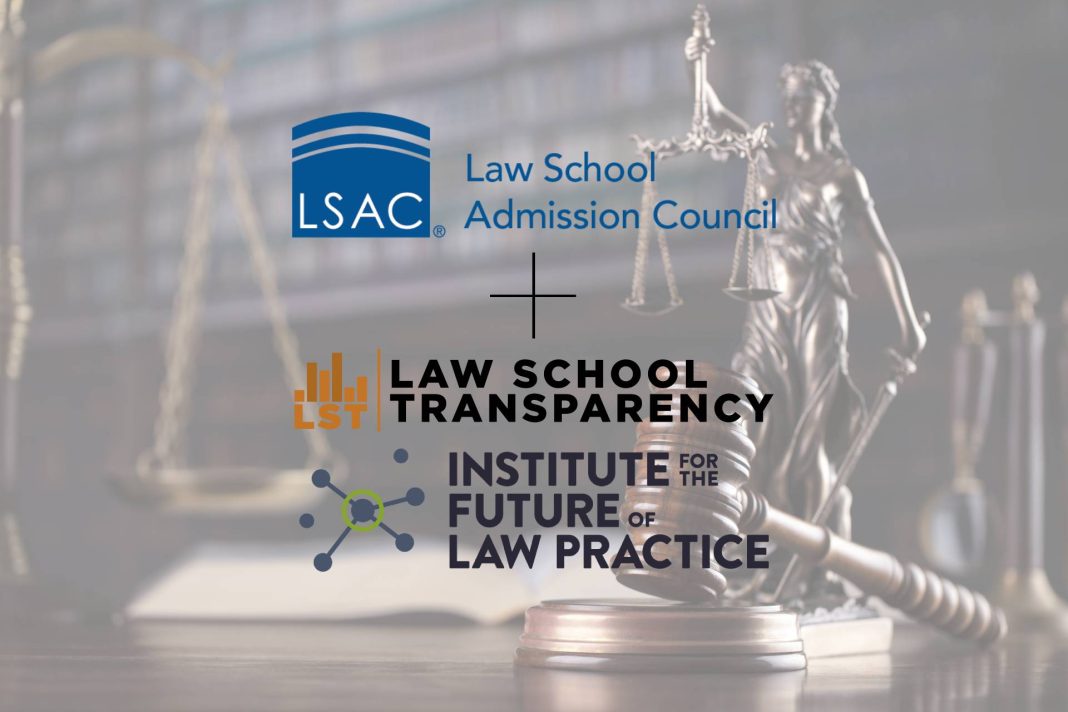The Law School Admission Council (LSAC) has been known mostly for one thing, and that’s administering the Law School Admission Test (LSAT). The organization appeared to relish tradition. After all, until 2019 the test was taken using paper and pencil.
But LSAC is evolving — and quickly.
Recently, LSAC acquired two organizations to bolster its relatively new service, LawHub, which offers tools for prelaw students, law students and attorneys. Now under LawHub’s umbrella are the Institute for the Future of Law Practice (IFLP) and Law School Transparency (LST).
The LST acquisition made considerable news. The nonprofit legal education watchdog has serious bite and has spurred much change since its founding more than a decade ago. It successfully pushed for more transparency when it came to graduate employment outcomes as well as the toughening of bar-passage-rate thresholds for schools.
LSAC says the acquisitions fit squarely with its expanded mission of assisting a larger pool of people in all phases of the law, be it attending law school or working in the field.
“Our goal is to provide an end-to-end experience that can be found nowhere else,” said Annmarie Levins, LSAC’s executive vice president and chief strategy officer.
Thus the acquisition of IFLP, which creates curriculum designed to augment law school offerings. One of its focuses is on educating attorneys about technological advances in the legal field, such as data analytics.
And Law School Transparency? It boasts a comprehensive website that offers key data regarding individual law school costs, admission trends, LSAT scores, bar passage success and graduates’ employment success. This information will now be available through LSAC.
“Law School Transparency has always done a terrific job,” Levins said. “It’s very data driven and is an excellent addition for us.”
Much of LawHub’s content is free, but there is a $99 yearly subscription charge for its Official LSAT Prep Plus, which offers additional LSAT practice tests and other benefits.
LSAC’s recent acquisitions will help ensure that it continues its mission of opening the legal field to more people, particularly minorities and first-generation law students, Levins said.
Already, LawHub has 180,000 active users.
As part of the acquisitions, LSAC hired the leaders of both groups. Kevin Colangelo, IFLP’s executive director, and Kyle McEntee, LST’s executive director, are now senior directors at LawHub.
McEntee, who co-founded LST when he was a law student, is an aggressive, media-savvy proponent of law school reform. In the past, The National Jurist magazine compiled an annual list called the Most Powerful People in Legal Education. McEntee made the list often, usually as the only honoree who wasn’t a law school employee.
He said joining LSAC was not a difficult decision for him. Not only did the missions of the two groups align but also LSAC has a preeminent role in legal education, which will allow LST to broaden its influence.
“We’ll reach a lot more people,” he said.
McEntee was developing a platform for prelaw students and prelaw advisors to help them navigate the admissions process when he learned that LSAC had a vision for a similar concept. He approached the organization, and it was agreed that joining forces would make great sense.
No money changed hands. LSAC is simply absorbing LST.
LST had no full-time employees other than McEntee, who now has a job that doesn’t require fundraising and grant-seeking.
“It’s not easy running a startup,” he said.
LSAC’s membership consists of law schools in the U.S., Canada and Australia. Of late, LSAC has been reinventing itself and becoming more student-centric, McEntee said. That’s primarily because of new leadership, starting with President and CEO Kellye Testy, he said.
McEntee said he hopes to expand LSAC’s services with podcasts and improved employment salary tools.
Given LST’s aggressive role in the field, it should not be a shock that LST and LSAC once bumped heads. In 2015, LST released a study identifying schools whose students were at heightened risk of not passing the bar. Low LSAT scores were used as part of the determining formula.
LSAC took offense, stressing that the LSAT is designed to determine law school success, not bar passage success. The two organizations exchanged barbs in the press.
The late Daniel O. Bernstine, then president of LSAC, wrote: “In addition to the fact that the recommendations in the LST report run counter to LSAC’s test use guidelines, we are concerned about the methodological errors upon which the report is based, and the misleading media coverage that this flawed report has generated.”
LST fired back: “LST understands that LSAC is speaking on behalf of many of its customers, which include the scores of law schools identified by LST as high risk, very high risk and extreme risk schools. LST understands that many of these law schools are very unhappy being called out for their reprehensible admissions practices.”
Ouch!
But the spat was never mentioned during the acquisition negotiations, McEntee said.
Levin, who was not with LSAC at the time of the disagreement, said she could not speak of the fray.
She did say, however, that it’s hardly unusual for organizations to have such disagreements and that it is now in the past.
“We have a very strong relationship,” she said.

